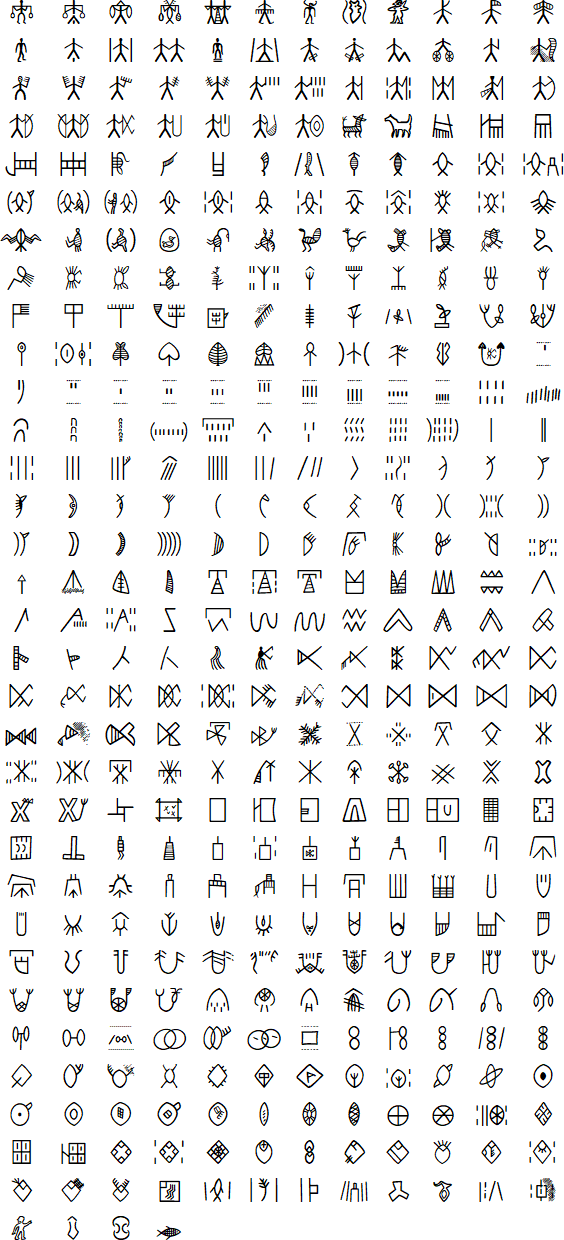The Indus or Harappa script collection of symbols used in the Indus valley in northern India between about 3,500 and 2,000 BC. Some believe that these symbols are non-linguistic, while others argue that they represent a Dravidian language.
Since 1875 more than 4,000 objects inscribed with this script have been found. Most inscriptions are short and consist of five symbols on average, with 17 in the longest one. Inscriptions are mostly on flat, rectangular stamp seals, and also on tools, tablets, ornaments and pottery. 417 distinct symbols have been identified, and the direction of writing is thought to be right to left, and sometimes boustrophedon.
Many people have tried to decipher the Indus script, but none have succeded so far, or at least none have produced a generally-accepted decipherment. Some believe that the Indus script was used to write a Dravidian language, others that it was used to write an ancestor of Sanskrit.

Many symbols have several different forms, which are not all shown here.
Font: NFM-Indus Script. Available from:
http://mohenjodaroonline.net/index.php/indus-script/corpus-by-asko-parpola
Download an alphabet chart for the Indus Script (Excel)

Information about teh Indus script
http://en.wikipedia.org/wiki/Indus_script
http://www.harappa.com/
https://www.ancient.eu/Indus_Script/
https://swarajyamag.com/culture/how-i-deciphered-the-indus-valley-script
Linear A, Indus/Harappa script, Phaistos Disc script, Proto-Elamite, Old Elamite, Rongo Rongo, Vinča script
Page last modified: 23.04.21
[top]
You can support this site by Buying Me A Coffee, and if you like what you see on this page, you can use the buttons below to share it with people you know.

If you like this site and find it useful, you can support it by making a donation via PayPal or Patreon, or by contributing in other ways. Omniglot is how I make my living.
Note: all links on this site to Amazon.com, Amazon.co.uk
and Amazon.fr
are affiliate links. This means I earn a commission if you click on any of them and buy something. So by clicking on these links you can help to support this site.
[top]